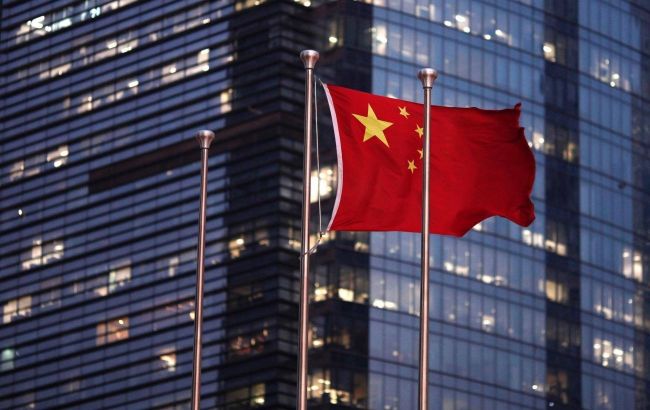China responds to U.S. sanctions with countermeasures against surveillance company
 Chinese Ministry of Foreign Affairs announces sanctions against an American company and two individuals (photo: facebook.com/worldeconomicforum)
Chinese Ministry of Foreign Affairs announces sanctions against an American company and two individuals (photo: facebook.com/worldeconomicforum)
China's Ministry of Foreign Affairs has announced its decision to impose restrictive measures against the American intelligence company Kharon and two individuals. This move by Beijing is a response to the U.S. sanctions on 2 siege entities and 3 companies in China for human rights violations, reports Xinhua.
The official spokesperson of the Chinese Foreign Ministry, Mao Ning, stated that the country has decided to take countermeasures.
She also called on the U.S. to stop smearing China.
"We firmly oppose this move, strongly condemn it, and have already made a stern representation to the U.S. side in this regard," said Ning.
What proceeded this
Recently, the United States published its annual report on the human rights situation in Xinjiang, China. Additionally, the U.S. imposed sanctions on two Chinese officials and three companies in connection with this issue.
Beijing's response
According to Chinese diplomat on December 27th, in accordance with the Anti-Foreign Sanctions Law, China will take countermeasures against the U.S. intelligence-gathering company Kharon. The diplomat claimed that Kharon has been collecting confidential information about Xinjiang for a long time and providing so-called evidence to justify unlawful U.S. sanctions related to Xinjiang.
The announced countermeasures will reportedly target:
- Edmund Xue, the director of investigations at Kharon,
- Nicole Morgret, a former researcher at the Center for Advanced Defense Studies.
What the restrictions entail
As explained by the Chinese Ministry of Foreign Affairs, the entry of the mentioned individuals into the country will be prohibited. Their property, as well as the assets of the Kharon company in China, including movable and immovable assets, will be frozen. Chinese organizations and private individuals will be prohibited from making deals and cooperating with them.
Details of the U.S. sanctions
This summer, the United States imposed a ban on importing products from the Chinese printer manufacturer Ninestar, as well as the chemical company Xingjang Zhongtai Chemical, citing human rights violations.
According to assessments by UN experts and human rights groups, over a million people, predominantly Uighurs and Muslim minorities, have been held in camps in the western Chinese region of Xinjiang in recent years.
The results of a government investigation revealed that Ninestar and its eight subsidiary companies in Zhuhai, along with Xinjiang Zhongtai Chemical, cooperated with the Chinese government in recruiting, transporting, harboring, and receiving Uighurs, Kazakhs, and Kyrgyz people into forced labor.
Beijing's response to American sanctions
On December 26, China officially responded to the U.S. imposition of sanctions on the Russian project Arctic LNG-2.
The Chinese Ministry of Foreign Affairs stated that the country's participation in the Russian project for the production of liquefied natural gas, Arctic LNG-2, should not be the target of any interference or restrictions by third parties.
The Arctic LNG 2 project was included in the U.S. sanctions list regarding Russia's energy production and export capabilities on November 2.

